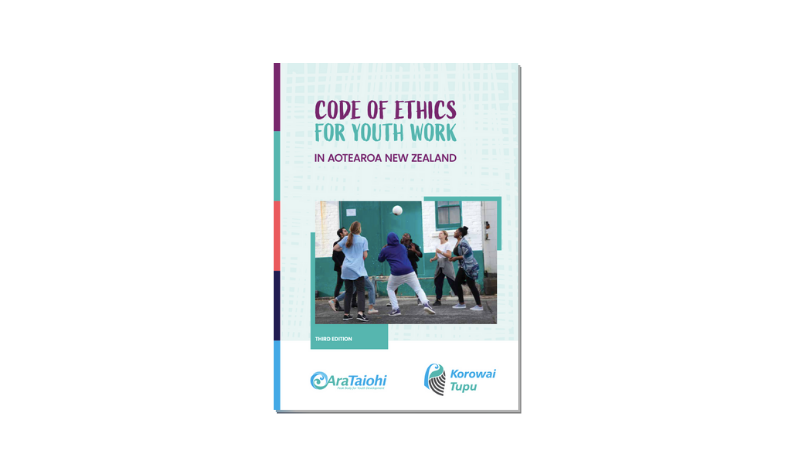THE CODE OF ETHICS
Mauri (o te Taiohi) | Insights
Please find a Tangata Whenua Insight and a Scenario Insight to support further understanding of these clauses
Please find a Tangata Whenua Insight and a Scenario Insight to support further understanding of these clauses
You notice a fellow youth worker giving nicknames to some of the taiohi Māori after declaring that their names are just too hard to pronounce.
For taiohi Māori growing up in Aotearoa, there are many things to navigate that can be impactful on their view of self, their confidence and connection to the world around them. We live in Aotearoa where te reo Māori and Māoritanga are unique. Names can at times carry the importance of connection to whakapapa. These can be passed down and can hold a special significance to the taiohi and their whānau. Other times Māori names have been thought out due to the significance of meaning.
Upholding the mana of the taiohi, their connection to whakapapa or to the significance of their name is empowering. The slightest mispronunciation can sometimes change the meaning of the word. The commitment to correct pronunciation of a person’s name (and all Māori language) is integral to normalising and celebrating the native language of Aotearoa.
Reflective questions:
Outside of work hours you see a 16 year old you work with drinking alcohol. You have had a few drinks yourself.
The start point in this situation is whether or not this behaviour is ‘covered by the Code’ (clause 2). The key question is: do your actions in this context relate to or affect your Youth Work practice? The answer to this is clearly ‘yes’, so your response needs to consider ethical considerations. This can be invasive for some youth workers, especially those in smaller communities where there is an even greater chance that your personal time and Youth Work time will overlap. In this case, clause 18 is highly relevant (Kia Aroā | Self-awareness).
The action that you take depends on all the circumstances. What is clear is the need to ensure the holistic safety of the young person (clause 20, Haumaru | Safety).
Advice from a young person: “Check for the safety of the environment you are in, how drunk they are and how drunk you are? Assess the situation – is this something I need to step into or are they OK?” – Young person, 23
Other clauses to be considered include:
14. Kia Awatea | Transparency: What and when will you communicate to your organisation or others?
15. Matatapu | Confidentiality: What agreement is there when you see a young person in a public place? Where is the safety line that might result in you extending confidentiality to others?
16. Ngā Tauārai | Boundaries: How will you follow this up with the young person?
NextWhakapapa (Taiohi) | Insight
Our behaviour is guided by our ethics and our ethics are based in our values.
The Code of Ethics provides an agreed set of guidelines for youth work in Aotearoa to ensure that youth work is carried out in a safe, skilled, ethical manner.